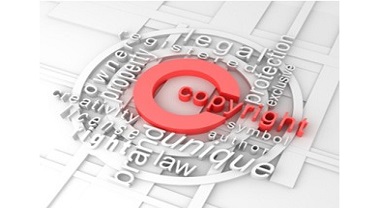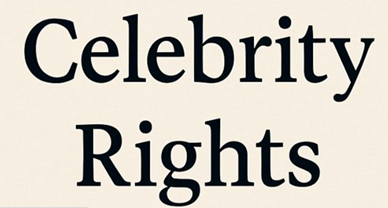Cognizability Of Copyright Infringement
A person who is fully aware of an existing copyright infringement, and chooses to infringe or abets to do the same, could be held liable for copyright infringement, which can incur criminal charges, and in order to find the cognizability of the same, Schedule I of the CrPC needs to be looked into.
The Schedule I consists of two parts wherein all the offences that have been laid down in IPC come under the purview of part I, and all the offences pertaining to other statutes come under the ambit of part II. As copyright infringement is not a part of the IPC, it comes under Part II of CrPC.
Further, in CrPC, depending upon the degree of an offence, the punishment is divided into three categories wherein:
- Offences that incur capital punishment, lifetime imprisonment, or an imprisonment for 7 years come under the ambit of category one. The same are considered to be cognizable offences and are not bailable.
- Offences that incur imprisonment for 3 years which can be extended up to a maximum of 7 years, come under the ambit of category two. The same are considered to be cognizable offences and are not bailable.
- Offences that incur imprisonment for a period of 3 years or with a fine, come under the ambit of category three. The same are considered to be non-cognizable offences and are bailable.
There exists no clear-cut criteria as to under what category does the offence of copyright infringement falls into.

The dilemma that various Courts have been facing lately is whether a copyright infringement is a cognizable offence or a non-cognizable offence. This complication may arise due to the lack of a proper definition pertaining to the cognizability of such infringement under section 63 of the Copyright Act.
Section 63 states that “Any person who knowingly infringes or abets the infringement of (a) the copyright in work, or (b) any other right conferred by this Act, shall be punishable with imprisonment for a term which shall not be less than six months but which may extend to three years and with fine which shall not be less than fifty thousand rupees but which may extend to two lakh rupees.”
Further, as per Section 70, any offence commissioned under this act is not eligible to be tried by a court subordinate to that of “a Metropolitan Magistrate or a Judicial Magistrate of the first class”. As per CrPC, a non-cognizable offence has no restrictions as to inferiority and could be tried by any magistrate with proper jurisdiction. Thus, it is fair to contend that an infringement of a copyright should be acknowledged as a cognizable offence. It is also pertinent to note that according to section 64(1), every police officer, with a rank not below a sub-inspector, is allowed to seize any copied work which causes copyright infringement even in the absence of a proper warrant and the same is supposed to be produced in front of a magistrate, which very well classifies the same to be a cognizable offence.
As stated earlier, offences have been divided into 3 categories under schedule I of CrPC, wherein the second and the third category both have a punishment of imprisonment of 3 years.
The conundrum faced by a number of High Courts is whether a copyright infringement comes under the purview of the second category or the third category, i.e., is the offence a cognizable offence or a non-cognizable offence.
JUDGEMENTS
Copyright infringement opined to be cognizable-
- The court in the case of Jitendra Prasad v. State of Assam stated that the commission of an offence under Section 63 of the Copyright Act must fall under the purview of the 2nd category of the Schedule I of CrPC based on the term of its punishment. As copyright infringement incurred a punishment of imprisonment up to a period of 3 years, the same must be categorised as cognizable and non bailable offence. This is one of the first cases to decide upon such classification.
- The Kerala High Court in Abdul Sathar v. Nodal Officer dealt with the question of whether copyright infringement comes within the scope of cognizable offence or non-cognizable offence. Going according to schedule I of CrPC, and the punishment mentioned under Section 63 of the Copyright Act, the court stated copyright infringement should come under the ambit of 2nd category of offence, i.e., it should be acknowledged as a cognizable offence.
- In 2020, the Rajasthan High Court in the case of Nathu Ram v. State of Rajasthan, stated that the judgement given by the court in the earlier case of Pintu Dey v. State of Rajasthan & Anr. acknowledging the offence of copyright infringement to be a non-bailable offence didn’t come across as the correct postulation of the dilemma. In accordance with the same, it was held that the question “What would be the nature of an offence (whether cognizable or non-cognizable) for which imprisonment “may extend to three years” is provided and no stipulation is made in the statute regarding it being cognizable/non-cognizable?” shall be placed in front of a larger bench. It further laid down that if the offence were to be a non-cognizable offence, the power to seize the copyrighted copies without a proper warrant would not have been given to the police officers. These questions once again opened up the dilemma of cognizability of copyright infringement and the same is yet to be resolved.
Copyright infringement opined to be non-cognizable-
- The SC in Rajeev Chaudhary v. State (NCT of Delhi) elucidated that the words “for a term that may extend to 10 years” and “for a term of not less than 10 years” does not equate to be the same thing. As 10 years is the most a person could be punished for in that particular offence in the first scenario, whereas, in the second scenario, 10 years is the least amount of time a person could be punished for. Relying on this judgement, the High Court of Andhra Pradesh in the case of Amarnath Vyas v. State of Andhra Pradesh stated that offences as per Section 63 should be read as non-cognizable and bailable as it comes within the ambit of the third category.
- In State Govt. of N.C.T of Delhi v. Naresh Kumar Garg, the Delhi HC gave a judgement based on the judgement passed in Avinash Bhosle v. Union of India. This case was not related to copyright infringement but dealt with Section 135 (1)(ii) of the Customs Act, 1962. Here the court elucidated that the words “imprisonment for a period which may extend to three years or fine or both” comes within the ambit of third category and is a bailable offence. As the punishment prescribed under the Customs Act and the Copyright Act were similar, the court applied the same reasoning and held that copyright infringement should come under the ambit of the third category and thereby is a non-cognizable offence. Further, the court also explained that if copyright infringement were to be a cognizable offence, there existed no reason to give police officers the authority and power to seize infringing copies under Section 64 of the Act.
CONCLUSION
With every copy made of an original work, the work loses its authenticity and its value which not only harms the author but also leads to loss of incentive and discourages others from creating new work which eventually would become a cause for the detriment of the economy. After analysing the cases and the provisions of the Copyright Act and the CrPC, it could be concluded that the offence of copyright infringement should be acknowledged as a cognizable and a non bailable offence.
Author: Mehak Mahapatra – a student of Symbiosis Law School (Hyderabad) in case of any queries please write back us via email at support@ipandlegalfilings.com or contact us at IP And Legal Filings.


